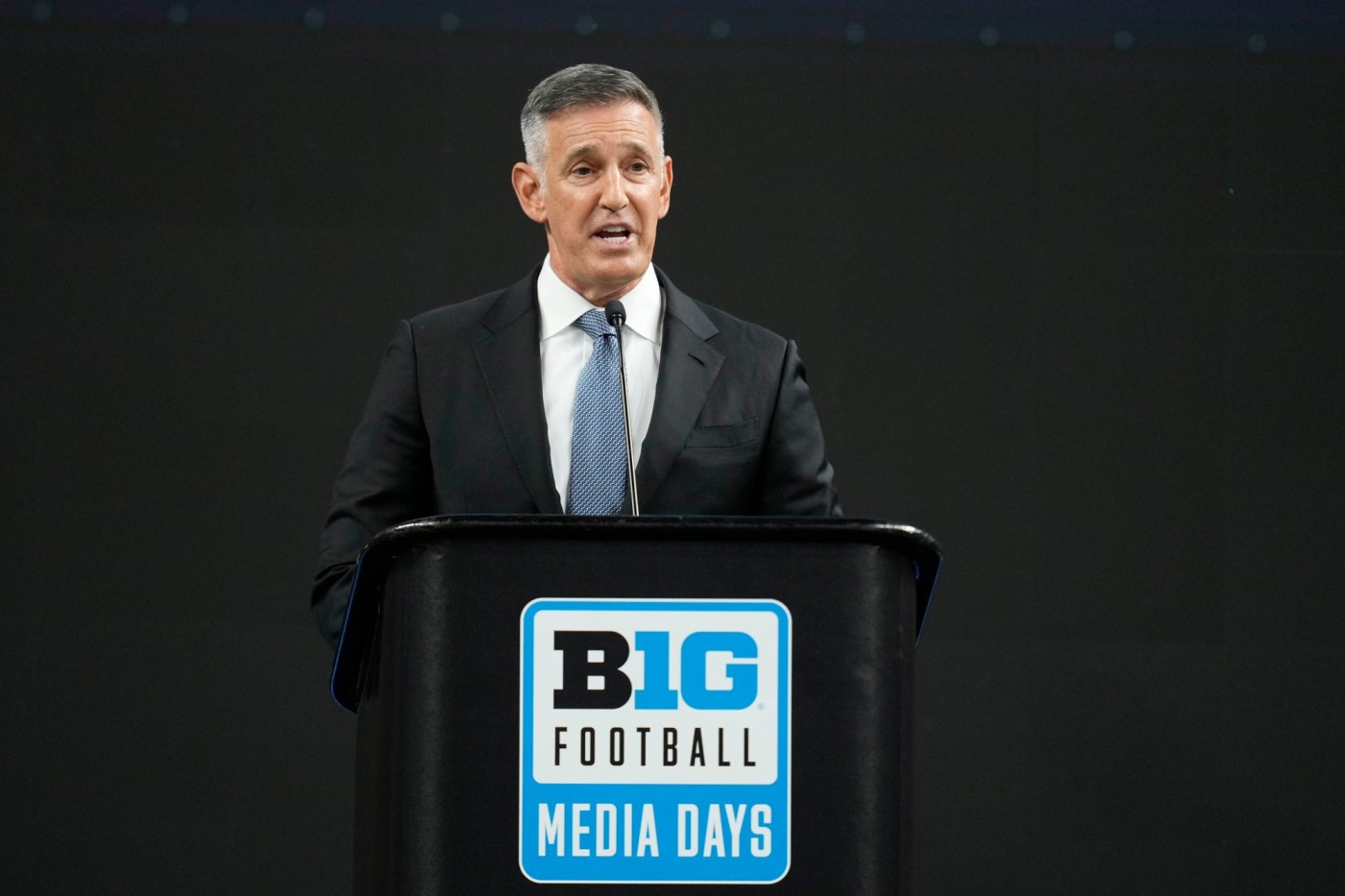UPDATE: A major investment deal worth $2.4 billion involving the Big Ten Conference is officially on hold as tensions rise within the league. UC Investments, representing the University of California pension fund, announced on October 23, 2023, that the pause will allow for further due diligence amid increasing concerns about internal discord within the Big Ten.
This unexpected development has sent shockwaves through the conference, indicating that urgent issues need to be addressed before any financial commitments can proceed. The atmosphere is reminiscent of the troubled times faced by the Pac-12 Conference between 2015-2020, where lack of alignment among member schools led to significant challenges.
The decision to halt the deal reflects a critical need for the Big Ten to regroup and reassess its strategic direction. Tony Petitti, the conference commissioner, is under scrutiny as he navigates a complex landscape marked by competing interests among universities, including prominent programs like the Michigan Wolverines and USC Trojans.
Insiders reveal that Michigan and USC voiced strong objections to the proposed deal, which would have extended their grant-of-rights agreements from 2036 to 2046. The plan included significant upfront payments, with Michigan poised to receive $190 million and USC $150 million. However, resistance from these powerhouse schools has left the deal in a precarious state.
In a statement to the Wall Street Journal, Mark Bernstein, chair of Michigan’s board of regents, stated, “It’s clear to us that the Big Ten is considering punishing the University of Michigan” for opposing the investment. Meanwhile, USC’s athletic director, Jen Cohen, emphasized the need for thorough evaluation of any deals impacting the university’s long-term value, highlighting a commitment to its reputation and brand.
The internal strife has cast a shadow over Petitti’s leadership, as he faces growing dissatisfaction from key stakeholders. Although he has championed initiatives like an expanded NCAA College Football Playoff, recent moves have sparked backlash and raised questions about his effectiveness in unifying the conference’s diverse interests.
As the Big Ten grapples with these challenges, the ongoing negotiations expose deeper issues regarding revenue sharing and governance among its members. The stark contrast between the financial needs of smaller programs and the aspirations of elite schools complicates consensus-building efforts.
Looking ahead, the Big Ten must find a path forward to ensure stability and alignment before any new deals can be considered. With over a decade remaining on the current grant-of-rights agreement, member schools are bound together, but the pressure is mounting for Petitti to address these tensions promptly.
The situation remains fluid, and the future of the $2.4 billion investment deal hangs in the balance. Stakeholders across the conference are watching closely, as the outcome could reshape the landscape of college athletics for years to come.
Stay tuned for more updates on this developing story.







